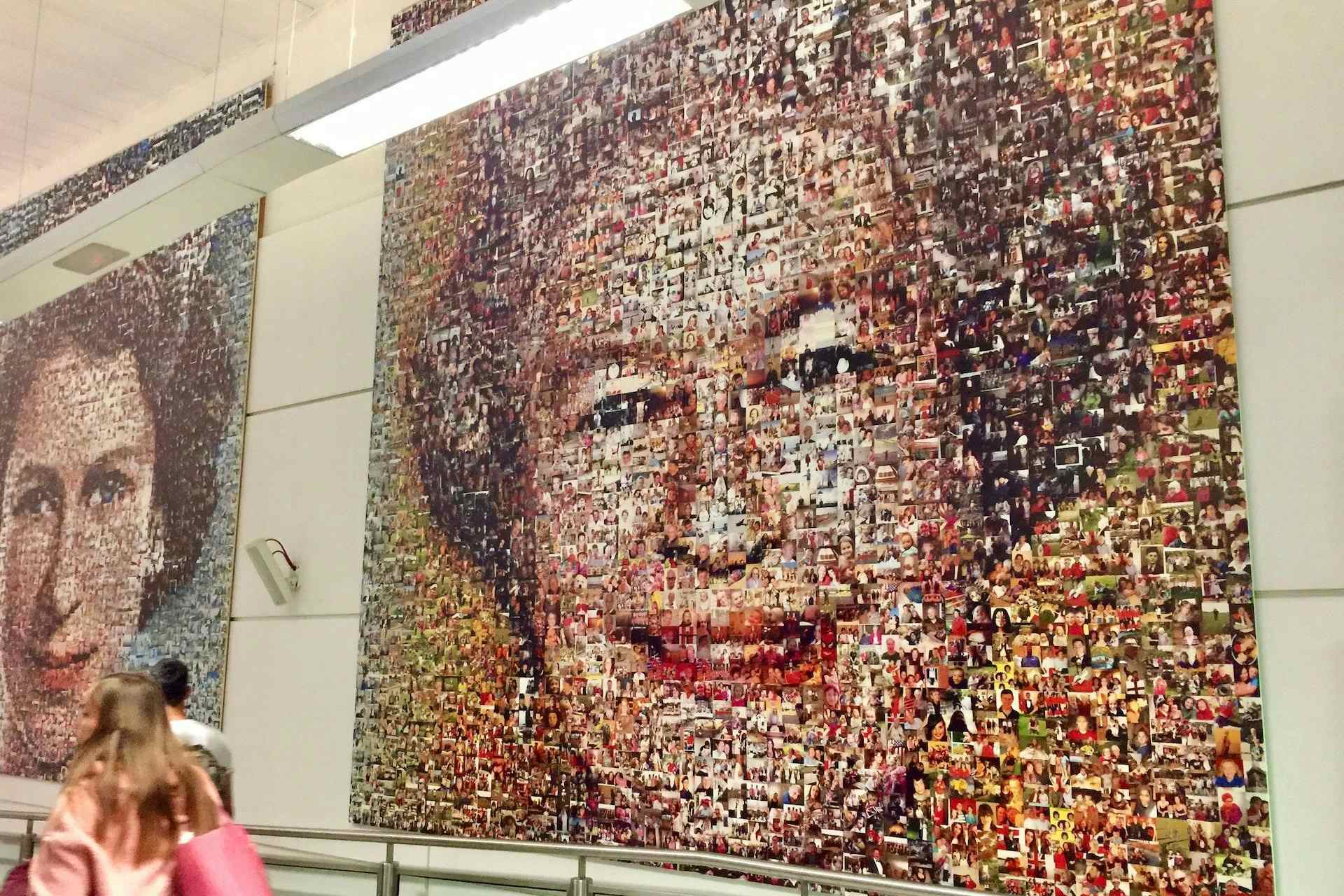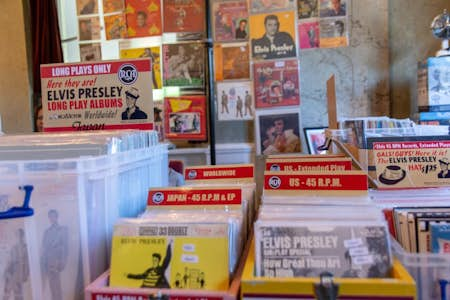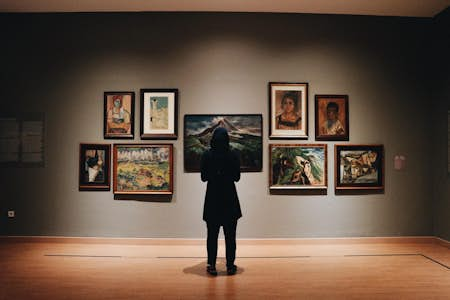I wasn’t born in Britain, I’m not one for the gossip mags, and I’ve never followed “royal news,” yet when I heard the Queen had passed, I almost started crying.
Why?
My life in London
While I was not born in Britain, I’ve spent almost all my adult life in and out of London. I moved there at age 20 to attend drama school. In doing so, I also learned about British culture and traditions. Not least because I had to act and direct characters from Britain’s history and, as such, I had to study that history. By that, I don’t mean the dates of the different wars, kings, and queens, but daily life in different eras.
I acted in Shakespeare and Ayckbourn, I performed at the Edinburgh fringe, and I know the streets of Soho like the back of my hand. Potentially unfortunately, I also know the streets of Finsbury Park like the back of my hand…
The surprising thing with all this, perhaps, is that I never took to life in London. While I’m very happy strolling around Sloane Square on moonlit nights, I can use my brolly extremely effectively while navigating my way around Oxford Street, and both swear and apologize like only a true Brit could, I do not fancy living in London full time. There are too many people, mice, and raindrops. But it’s still my home. It still shaped me and gave me access to some of the best things in my life—education, friends, and J.K. Rowling.
And this is my point with the Queen—she’s part of what made it possible to feel at home and safe in London.
Safety
For the past ten years, I’ve been living on and off in Cape Town, South Africa, while also staying in London and other places.
When I returned to London for visits and stays after I moved to Cape Town, I started seeing the city differently—especially at night. I remember coming out of a tube station after dark and realizing it was situated next to a park. And to get to the street, I had to walk through the park. Other commuters did that—walked across the dark park without a care in the world. I, on the other hand, suspiciously looked around me seeing if there wasn’t anyone lurking in the shadows.
My move to Cape Town had made me scared of walking down a street after dark. You don’t do that in Cape Town unless it’s a street you know is filled with people or is within some sort of estate. Because if you’re unlucky, you’ll get mugged, or worse.
These days, when spending time in London, I feel incredibly liberated because I can walk around the city after dark. As mentioned, one of my favorite places is Sloane Square on a moonlit night. I used to live just a few blocks away and walking home from the tube when the moon came out was always a delight. It was so pretty with the old mansion as they glimmered in the moonlight and the yellow light of old-fashioned streetlights.
Get me right, I’ve been mugged in London, too. But the odd pickpocket or mugger is not the same as the violence that exists in Cape Town. In London, you can sit in your garden with your gate open to the street without worrying that someone will come inside and point a gun at you.
The Queen, together with everyone else ruling Britain, have ensured it’s possible to walk home after dark in London. It’s not entirely safe—nowhere in the world is—but for anyone who has seen the amount of drunk people on a 2 am bus in London, you know there are a lot of people out at night who suffer no harm. Not even when they’re so drunk they fall off their bus seat and puke all over the floor.
Showing up
The Queen came to power just after WWII—during the war she was out there helping out with the war effort herself. She wasn’t an idle bystander; she got her hands dirty. You can say she only did what any Brit would and certainly what a future Queen should, but she still did it. She didn’t run off to the countryside. And throughout her reign, she continued to do it; continued to show up.
There are problems with politics in Britain, just as there are in the rest of the world. The Queen made mistakes, just as all leaders make mistakes at some point. We’ve all heard that she could be a tad stuck up. That, however, never stopped her from continuing to show up. She kept doing her duty when the public praised her and when they loathed her.
I live in a country now where politicians don’t always show up. We used to have a President who said he couldn’t get HIV because he showered after sex. While I’ve never heard the Queen talk sex, I do believe she had enough common sense not to mislead people. She was educated. She cared about her country. She showed up.
Plus, while it may have nothing to do with the Queen, the Brits don’t shy away from topics like sex education like they do in the US. The Queen may have had a stiff upper lip, but it didn’t get in the way of free sexual health clinics.
The end of an era (manners maketh the man)
To me, the Queen represents an era of time when people strove to be morally correct. A time when you adhered to tradition–set social rules and etiquette–and fought for King and country. There were clear directives for everything from what time supper should be served to how to go about courting someone.
These absolutes were often misguided, yet if you broke any of them, it led to scandal.
Many times, people had to hide their real selves and if they failed–like Oscar Wilde experienced–they ended up shamed, blamed and possibly in prison. Admittedly, that was before the Queen’s time, but the idea of right and wrong in the context of scandal lived on.
These somewhat misguided morals also led to the belief you were born into a “downstairs” or “upstairs” life, colonialism and “saving heathens” around the world. Not to mention all the scandals the aristocracy got away with as they had the upper hand when dealing with those below stairs.
The Queen helped reform all of that. She was part of a new Britain–one where anyone could make something of themselves. Where human rights started to flourish. Where there were no more workhouses or orphans living in the streets.
Yet, to me, the Queen still represented what was good about seeking to be morally correct. She showed up time and time again to represent her country. She got her hands dirty during the war instead of hiding away from the bombs. She stood by the man she loved.
The changes in the past 100 years that have liberated us from misguided social etiquette have also, unfortunately, liberated us from morals at large in some instances. And it’s left people confused and uprooted–not only do we move countries, there are no longer any guides to how to act, what to do when, and so forth.
I’m possibly one of the most liberal people you’ll ever meet and I will object to any convention forced upon me that does not suit me, but I do believe in functional structures and honoring morals. To an extent, we all benefit from an etiquette where behavior is concerned.
I never heard of the Queen berating people on Twitter like a certain American President did. But had the aforementioned President been born into British royalty, chances are he’d have been trained to express himself with more dignity. And that’s what I mean about morals, etiquette, and doing the right thing. (I’d also like to think that royalty would be trained not to ghost people on Tinder, but I could be wrong about that…)
Having spent time in many places, I feel gratitude towards Britain, the Queen, and what they represent–whether I like the rain, or not.
So, here’s to the Queen–may she rest in peace and her heirs continue to serve Britain in the best of all possible ways. And may that stiff upper lip never quite go out of fashion.






